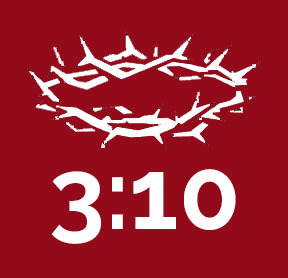Prophecy: General Principles

John the Baptist by Sandro Botticelli c 1480AD
Image may be copyright
In 1 CORINTHIANS 14:1-25 Paul urges the Corinthian Christians to pursue the way of God's agape-love rather than indulging in arguments about spiritual gifts such as speaking in tongues and prophecy. But he also urges them to desire the supernatural gift of prophecy.
The Purpose Of Prophecy: God Speaking To His Children
Biblical prophecy = speaking out words from God to his children. It includes -
both FORTHTELLING - speaking words of encouragement, instruction, & rebuke
and FORETELLING - warning God's people of future events
As we saw in the unit on GIFTS OF SPEAKING, prophecy is God speaking to believers, whereas tongues + interpretation is God speaking to non-Christians.
The most important role of biblical prophecy is to call God's children to repent of their sins and return to God.
Prophecy In The Old Testament
The Old Testament prophets were men and women called by God to be his spokespersons. Their primary role was to speak God's warnings to his children about their sin - their natural tendency to wander away from the Living God, who had delivered them from slavery in Egypt and given them a land flowing with milk and honey, as he had promised centuries earlier to Abraham.
Some of the prophets, like Samuel and Jeremiah, had heard God's call when they were just children or young men.
For more on the call of Samuel, Jeremiah, go to 1 SAMUEL 3 and JEREMIAH 1 and DANIEL 1.
Others found themselves called as adults to speak God's message to kings, civil and religious leaders, and to God's chosen people Israel - for example, AMOS, ISAIAH, HOSEA and ZECHARIAH.
God also used women to be his spokespersons - for example, Miriam, Deborah, and Esther.
The Theme Of Old Testament Prophecy
"O Israel, Return To The Lord!"
All the way through the Old Testament we see God sending his spokesmen, the prophets, to call his wayward children Israel back to him and warning them of the bitter consequences if they refused.
-
Sometimes the messages contained a simple warning to repent - FORTH-TELLING
-
At other times God used the prophets to deliver a specific warning beforehand about the punishment that would befall them for their rebellion - FORE-TELLING.
An Old Testament Prophecy for King David
In 2 SAMUEL 12 we see an example of a prophetic word brought by the prophet Nathan to King David that is both forth-telling and fore-telling.
The first part of the prophecy is in the form of a parable and a word of knowledge, which uncover David's sins of adultery and murder. The second part is a prophecy about the impact his sins will have on his family in the years to come - which was confirmed by subsequent events in Israel's history.
Prophecy In The New Testament
In the New Testament we see the same two roles of prophets as God's spokespeople - FORTHTELLING God's people to repent and return to God and FORETELLING future events.
Some Examples of Prophecy in the New Testament
For examples of New Testament prophets, click on the following names - Simeon; Anna; Peter; Agabus; Agabus and the daughters of Philip; John the Baptist.
Of course the supreme example of prophecy in the New Testament is the LORD Jesus Christ, in whom were combined the three Old Testament roles of prophet, priest and king.
FORTHtelling: Jesus constantly warned God's children to "repent for the kingdom of God is near you."
FOREtelling: We also see Jesus prophesying the future destruction of Jerusalem , which eventually was fulfilled in 70 A.D, when a Roman army under Titus sacked the Temple and destroyed Jerusalem.
The Supernatural Gift Of Prophecy In A Church Meeting - 1 CORINTHIANS 14
Paul is giving instructions on prophecy and speaking in tongues to the Christians in Corinth, because they had been abusing these gifts and their fellowship meetings had descended into chaos. [For more on the difference between prophecy and tongues, go to GIFTS OF SPEAKING.]
General Points re The Gift of Prophecy
Paul makes the following points about the exercise of the gift of prophecy.
1. Prophecy is a spiritual gift to be eagerly desired because it is the privilege of speaking out for God.
2. Because it is such a privilege it can easily be abused and so needs to be exercised with caution and tested by others gifted in this area as well as by the Body of Christ.
In practice church leaders need to protect the flock from false prophets by testing every prophecy before allowing it to be given to the fellowship. This is especially true where the person claiming to have a prophetic word is not a member of the fellowship or known by the leadership.
Testing the prophecy includes testing the prophet's lifestyle. Any word claiming to be a prophecy that contradicts the Word of God is clearly not of God. And anyone unwilling to submit to godly leadership is clearly not operating under the anointing of the Holy Spirit.
3. Not more than one person should prophesy at a time, and each prophecy should then be tested by two or three in leadership before being broadcast.
4. The test of true prophecy is
either it causes people to repent of sin and turn back to God (ie forthtelling)
or it is confirmed by later events (ie foretelling) - the test of biblical prophecy
5. We should not quench the Spirit by refusing to allow God to speak through his children gifted in this way, just because it can be abused. The answer to abuse is proper use, following the guidelines outlined above.




